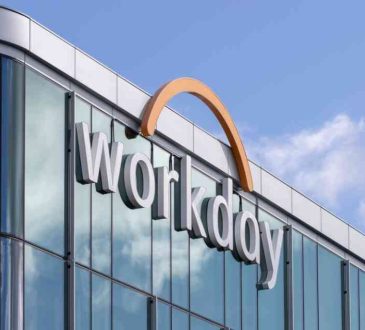Flexibility at work – it’s more than just work from home

After the last 2 years, you’d be forgiven for thinking that flexibility at work is all about working from home. But flexibility doesn’t stop there. If the pandemic has taught us nothing else, it’s the importance of being flexible in all areas of work to enable us to adapt to new situations that arise.
Surveys around the world are showing that people want flexibility at work. In the EY 2021 Work Reimagined Employee Survey, more than half (54%) of the 16,000 employees surveyed around the globe stated they would consider leaving their job if they aren’t afforded some kind of flexibility.
To avoid your business being a statistic in the ‘great resignation’, you need to do more than offer work from home options if you want to attract and retain the best talent and maximise your business productivity and effectiveness. We absolutely need to look at where we ask people to work, but we can’t stop there. We need to keep going and look at when and how we work. Only by considering all these options can we create truly innovative and attractive flexible work practices.
Where we work
There is no doubt that work from home has increased rapidly. ABS data shows that 41% of employed people were regularly working from home in August 2021 up from 32% in 2019. However, we need to look beyond home offices.
“Work from anywhere” is not new. We’ve always had travelling salespeople, or people who needed to travel to visit clients or suppliers or attend conferences. The difference we are seeing now is the increased appetite from businesses not to require staff to attend a central office – or businesses that don’t even have a central office at all. Businesses are more commonly accepting work from home or hybrid arrangements, and we are also seeing more willingness to accept uncommon options like “workcations” – working from some other place whether it’s an exotic beach resort or a quiet escape. If there’s a job that doesn’t have to be done in an office, and the right technology is there to support it – what limits really need to be placed on location?
When we work
Alternative options to the traditional 5 day work week have also been around for decades. We’ve seen a variety of changes to working hours including compressed working weeks, different start/finish times, changing days of the week, RDOs, 9 day fortnights, 4 day weeks, job share arrangements and buying extended periods of leave.
The key feature of all these options is that they are formalised. You could say that they don’t provide a lot of flexibility at all because once they are locked in, they are as static as the usual 9-5 Monday to Friday.
In 2022 we are seeing an increased opportunity for employees to choose when they work – early morning, late evening, weekends, split shifts in a day – without the need for the arrangement to be formally requested and approved. However, employers will need to be cautious as the law hasn’t quite caught up with society expectations. Although there is a great demand for this flexibility, the law still has rigid requirements around hours of work and rates of pay that employers will need to navigate.
How we work
The really interesting changes in flexibility initiatives at work in the future are likely to be those addressing “how” we work. As the pandemic causes people around the world to reflect on work and life we are seeing a greater demand for overall autonomy at work. In a 2021 hybrid working study, the researchers found employees don’t want to be told where and when they must work – they want the ability to choose, and not only that, to change their choice from time to time without the need to seek approval or fit within prescribed limits.
As employees seek more and more autonomy there is a natural consequence for how we work. If we aren’t all working at the same time and in the same place, we can’t rely on the old methods for communicating and collaborating. As Steve Glaveski says, work will be forced to become more asynchronous in nature. We will see people setting their own schedules and being increasingly self-managed.
There is no doubt that we have seen huge leaps forward in technological innovation at work, yet the drive towards autonomy and the need for asynchronous communication options will see this continue. In his article on ‘Our Work-from-Anywhere Future’, Raj Choudhury posited that we will see organisations finding ways to codify workplace knowledge to avoid information only residing “in people’s heads”, new innovative ways to communicate, and in person events specially designed to foster connection and collaboration.
Flexibility in all forms
As Adam Grant said “Flexibility is here to stay. Those who reject it, may not be”. It’s up to you to create a menu of flexibility options that suits your business and those who work within it. Don’t be left behind – or worse, completely extinct.
Written by Joanne Alilovic.
Have you read?
# Best CEOs In the World Of 2022.
# TOP Citizenship by Investment Programs, 2022.
# Top Residence by Investment Programs, 2022.
# Global Passport Ranking, 2022.
# The World’s Richest People (Top 100 Billionaires, 2022).
# Satya Nadella: The most successful CEO of the Tech industry.
Add CEOWORLD magazine to your Google News feed.
Follow CEOWORLD magazine headlines on: Google News, LinkedIn, Twitter, and Facebook.
Copyright 2024 The CEOWORLD magazine. All rights reserved. This material (and any extract from it) must not be copied, redistributed or placed on any website, without CEOWORLD magazine' prior written consent. For media queries, please contact: info@ceoworld.biz








